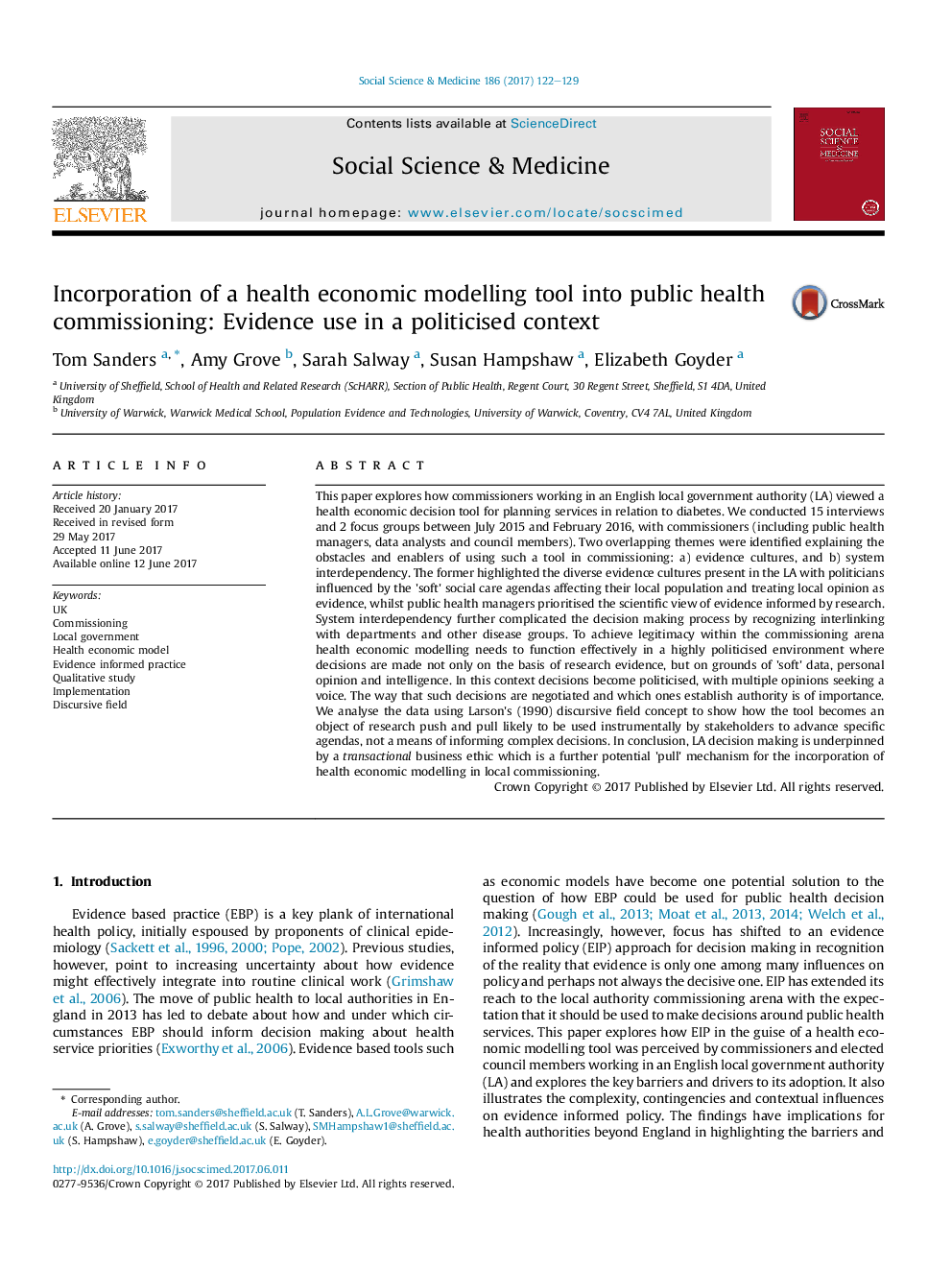| کد مقاله | کد نشریه | سال انتشار | مقاله انگلیسی | نسخه تمام متن |
|---|---|---|---|---|
| 5046390 | 1475983 | 2017 | 8 صفحه PDF | دانلود رایگان |
- Diverse evidence cultures in local government influence use of evidence based tools.
- Evidence based tools need to acknowledge system interdependency to gain acceptance.
- Tools become subject to research push and pull used instrumentally by commissioners.
- Presence of 'dual elites' lead to the politicisation of commissioning decisions.
This paper explores how commissioners working in an English local government authority (LA) viewed a health economic decision tool for planning services in relation to diabetes. We conducted 15 interviews and 2 focus groups between July 2015 and February 2016, with commissioners (including public health managers, data analysts and council members). Two overlapping themes were identified explaining the obstacles and enablers of using such a tool in commissioning: a) evidence cultures, and b) system interdependency. The former highlighted the diverse evidence cultures present in the LA with politicians influenced by the 'soft' social care agendas affecting their local population and treating local opinion as evidence, whilst public health managers prioritised the scientific view of evidence informed by research. System interdependency further complicated the decision making process by recognizing interlinking with departments and other disease groups. To achieve legitimacy within the commissioning arena health economic modelling needs to function effectively in a highly politicised environment where decisions are made not only on the basis of research evidence, but on grounds of 'soft' data, personal opinion and intelligence. In this context decisions become politicised, with multiple opinions seeking a voice. The way that such decisions are negotiated and which ones establish authority is of importance. We analyse the data using Larson's (1990) discursive field concept to show how the tool becomes an object of research push and pull likely to be used instrumentally by stakeholders to advance specific agendas, not a means of informing complex decisions. In conclusion, LA decision making is underpinned by a transactional business ethic which is a further potential 'pull' mechanism for the incorporation of health economic modelling in local commissioning.
Journal: Social Science & Medicine - Volume 186, August 2017, Pages 122-129
